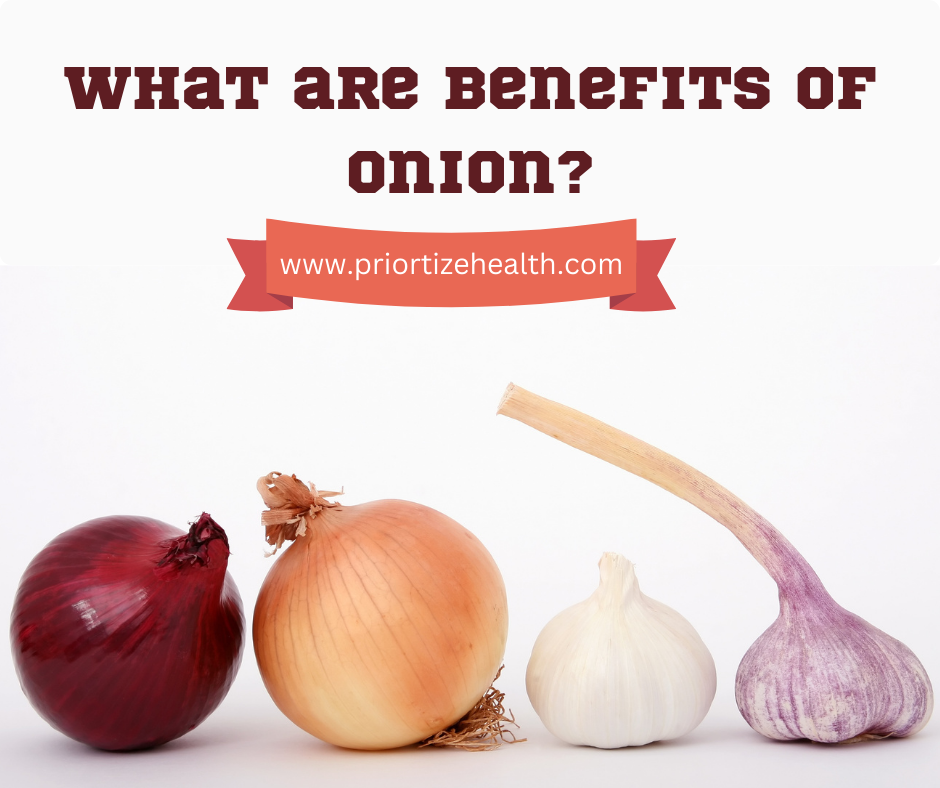
Thinning Hair in Women: Myths, Facts, and Effective Remedies
Thinning hair is a concern that affects many women. It often leads to feelings of self-consciousness and anxiety. There is so much information—and misinformation—available. It can be challenging to separate fact from fiction. In this article, we’ll explore common myths surrounding hair thinning. I will present the facts and discuss effective remedies. This will help you to navigate this issue with confidence.
Hair Thinning
Hair thinning is a common concern among many women. It refers to a reduction in hair density on the scalp. This leads to a less voluminous appearance. Complete hair loss may leave bald patches. But thinning hair affects the look of the hair. Several factors contribute to hair thinning. Genetics being one of the most significant factors. Conditions like androgenetic alopecia, or hereditary hair loss, can impact women at any age. It often begins at the crown or temples. Hormonal changes also play a crucial role. Some fluctuations during puberty, pregnancy, menopause can also cause hair thinning. The conditions like polycystic ovary syndrome (PCOS) can lead to a noticeable decrease in hair density.
Stress can further exacerbate hair thinning. It can be both physical and emotional. Conditions such as telogen effluvium cause hair follicles to prematurely enter a resting phase. This results in increased shedding. Nutritional deficiencies can also have a detrimental effect on hair health. A diet lacking essential nutrients—such as iron, zinc, biotin, and vitamins A and D—can weaken hair strands. This can contribute to thinning. Additionally, certain medical conditions can lead to hair loss. They include thyroid disorders and autoimmune diseases. Hair care practices can further cause breakage and thinning. Some examples are overuse of heat styling tools, harsh chemicals, and tight hairstyles.
Recognizing the signs of hair thinning early is crucial. Do you notice significant changes in hair density? If yes, it’s advisable to seek help from a healthcare professional. A dermatologist or trichologist can provide insights into the underlying causes. They can recommend suitable treatments. Understanding hair thinning is the first step toward managing it. We should recognize contributing factors and stay informed about potential remedies. Women can take proactive steps to maintain their hair health and confidence. It can be through lifestyle adjustments, dietary changes, or professional guidance.
Common Myths About Thinning Hair
1. Myth: Only older women experience hair thinning
Fact: While it’s true that hair thinning often becomes more noticeable with age, it can affect women of all ages. Some factors can trigger thinning hair in younger women. They are hormonal changes during puberty, pregnancy, or menopause. Genetic predisposition also plays a significant role. It is possible for women in their 20s or 30s to experience hair loss.
2. Myth: Washing hair too often causes thinning
Fact: Washing your hair frequently does not cause it to thin. In fact, regular washing with a gentle shampoo can help maintain scalp health. It removes dirt and excess oils. We should choose a shampoo that suits your hair type. Avoid over harsh products that could damage hair. The key is to wash your hair as needed without overdoing it.
3. Myth: Hair products are the main cause of thinning
Fact: While some hair products can damage hair if used in excess or improper manner. They are not the primary cause of hair thinning. Genetics and hormonal issues are far more significant contributors. It’s wise to avoid products with harsh chemicals that can weaken hair over time.
4. Myth: Cutting hair short makes It thicker
Fact: Cutting hair does not affect its thickness or growth rate. A shorter haircut may give the appearance of fuller hair. This is due to less weight and bulk. It does not actually change the hair’s structure. We can determine hair thickness by genetics and cutting it does not influence that.
5. Myth: Hair thinning Is always permanent
Fact: Hair thinning can be temporary or permanent, depending on the underlying cause. Stress or illness can cause conditions like telogen effluvium. It can lead to temporary shedding that resolves once we address the underlying issue. But, genetic conditions such as androgenetic alopecia can lead to permanent thinning if not managed.
6. Myth: Only men experience hair loss
Fact: People recognize the male pattern of baldness. But women also experience hair loss and thinning at significant rates. Conditions like androgenetic alopecia affect both genders. Women may experience diffuse thinning rather than bald spots. Societal perceptions may downplay the issue for women, but it is a serious concern for many.
7. Myth: Stress Is the only cause of thinning hair
Fact: While stress can contribute to hair thinning, it is not the sole cause. Genetics, hormonal changes, nutritional deficiencies, and medical conditions are significant factors as well. Stress can exacerbate existing hair issues but is usually part of a broader set of causes.
8. Myth: Hair thinning can be reversed overnight
Fact: There is no quick fix for hair thinning. While some treatments, such as minoxidil, can promote hair growth. The results take several months to become visible. Sustainable hair health requires consistent care and proper nutrition. It can give better results with a combination of treatments over time.
9. Myth: Hair thinning can cause due to poor hygiene
Fact: Poor hygiene does not cause hair thinning. In fact, a clean scalp is essential for healthy hair growth. But certain scalp conditions can lead to hair issues if left untreated. They are dandruff or fungal infections. Maintaining good scalp hygiene is important, but it is not a direct cause of thinning hair.
10. Myth: You can fix thinning hair with home remedies alone
Fact: Some home remedies may help improve hair health. They are not a substitute for medical treatments when necessary. Issues like hormonal imbalances or genetic conditions often need professional intervention. A balanced approach may include both home care and professional treatments. It is the most effective way to address hair thinning.
Facts About Thinning Hair
1. Genetic Predisposition
One of the main significant factors in hair thinning is hereditary qualities. Conditions like androgenetic alopecia (hereditary hair loss), can affect women and men. If you have family members with thinning hair, you may be at a higher risk.
2. Hormonal Changes
Hormonal fluctuations play a vital part in hair health. Events such as puberty, pregnancy, and menopause can lead to changes in hair density. Conditions like polycystic ovary disorder (PCOS) can likewise cause hormonal imbalances. It can contribute to thinning.
3. Age-Related Changes
As women age, hair begins to thin. It may be due to hormonal changes, particularly during menopause, when estrogen levels drop. Many women notice a gradual decrease in hair volume as they enter their 40s and beyond.
4. Stress Impacts Hair Health
Both physical and emotional stress can lead to a condition known as telogen effluvium. Here the hair follicles enter the resting phase prematurely. This can result in increased shedding, often noticeable several months after a stressful event.
5. Nutritional Deficiencies
A balanced diet is vital for healthy hair. Deficiencies in essential nutrients can debilitate hair strands and add to thinning. Some examples are iron, biotin, vitamins A, D, and E. Ensuring you have adequate nutrition can support hair health.
6. Medical Conditions
Certain medical conditions can lead to hair thinning. They are thyroid disorders and autoimmune diseases (like alopecia areata). Are you experiencing sudden or significant hair loss? Then it’s important to consult a healthcare provider for a proper diagnosis.
7. Scalp Health Matters
A healthy scalp is essential for hair growth. Conditions such as dandruff, psoriasis, or fungal infections can affect hair health. Regular scalp care can support a healthy environment for hair growth. It includes gentle cleansing and moisturizing.
8. Environmental Factors
Environmental stressors can damage hair and contribute to thinning. It includes pollution, harsh weather, and exposure to chemicals. Protect your hair from extreme conditions and minimize exposure to damaging products. This is vital for keeping up with hair wellbeing.
9. Hair Care Practices
Improper hair care practices can lead to breakage and thinning. Some examples are excessive heat styling, tight hairstyles, and the use of harsh chemicals. Choose gentle hair care methods and minimize damage. This is crucial for maintaining hair health.
10. Treatment Options Exist
There are different treatment choices available for hair thinning. It ranges from topical treatments like minoxidil to lifestyle changes and dietary supplements. Consulting a healthcare professional can help you find the most appropriate approach. It depends on your specific situation.
Effective Home Remedies for Thinning Hair
1. Essential Oils
Rosemary and Peppermint Oil are popular for their stimulating properties. Dilute a few drops of either oil in a carrier oil (like coconut or jojoba oil) and massage it into your scalp. Leave it on for no less than 30 minutes prior to washing it out. This can improve circulation and promote hair growth.
2. Aloe Vera
Aloe vera has soothing properties. It can help reduce scalp irritation while promoting hair growth. Apply fresh aloe vera gel directly to the scalp, leave it on for about an hour, and then rinse with a mild shampoo.
3. Onion Juice
Onion juice is rich in sulfur. It can help improve circulation and promote collagen production. Churn an onion, strain the juice, and apply it to your scalp. Leave it on for 30 minutes prior to rinsing it out. The smell may be strong, but many find it effective for hair growth.
4. Egg Masks
Eggs are high in protein and nutrients essential for hair health. Whisk an egg and apply it to your hair and scalp. Leave it on for about 30 minutes before rinsing with cool water and a mild shampoo. This can strengthen hair and promote growth.
5. Coconut Oil
Coconut oil is popular for its moisturizing properties. It can assist with reducing protein loss in hair. Warm up some coconut oil and it into your scalp and hair. Leave it on for basically an hour or short-term for an hour or overnight for deeper penetration, then wash it out.
6. Fenugreek Seeds
Fenugreek seeds are rich in proteins and nicotinic acid, which can strengthen hair. Soak the seeds overnight, crush them into a paste, and apply to the scalp. Leave it on for about 30 minutes before rinsing out.
7. Green Tea
Green tea contains antioxidants that can stimulate hair growth. Brew some green tea, let it cool, and and use it as a last wash after shampooing. Alternatively, you can apply it to the scalp and leave it on for an hour before rinsing.
8. Castor Oil
Castor oil contains ricinoleic acid, which can improve circulation and promote hair growth. Massage castor oil into your scalp, leave it on overnight, and wash it out in the morning. It can be thick, so mixing it with lighter oils like coconut or almond oil can make it easier to apply.
9. Avocado
Avocado is rich in healthy fats, vitamins, and minerals that nourish hair. Mash a ripe avocado and mix it with olive oil or honey. Apply it to your hair and scalp, leave it on for about 30 minutes, and then rinse.
10. Yogurt and Honey
A mixture of yogurt and honey can nourish the scalp and strengthen hair. Combine equal parts of plain yogurt and honey. Apply it to your scalp and hair. Leave it on for about 30 minutes before rinsing with tepid water.
11. Nettle Leaf Tea
Nettle is popular for its ability to promote hair growth. Brew nettle tea, let it cool, and use it as a rinse after washing your hair. You can also drink nettle tea daily as it has beneficial nutrients.
Conclusion
Thinning hair can be a challenging issue for many women. In any case, it’s important to remember that you’re not the only one, and effective options are available. Try separating myths from facts and take proactive steps. You can manage hair thinning and maintain your confidence. It can be possible with lifestyle changes, professional treatments, or self-care practices. There are ways to support your hair health and embrace your unique beauty. Always consult a healthcare professional prior to making any changes. It can be to your hair care routine or diet.
FAQ’s:
Ans: Yes, female thinning hair can often be reversed, depending on the underlying cause. Treatments like topical solutions (e.g., minoxidil), hormonal therapy are helpful. Some lifestyle changes (such as a balanced diet and stress management) can help. Early intervention is crucial for the best outcomes. So, consulting a healthcare professional is beneficial.
Ans: Hair thinning can cause due to deficiencies in key nutrients. They are iron, biotin, zinc, and vitamins A, D, and E. These nutrients help in boosting hair growth and health. Insufficient intake can weaken hair strands, leading to increased shedding and thinning. A decent eating regimen is essential for prevention.
Ans: To thicken female thinning hair, use volumizing shampoos and conditioners. Consider topical treatments like minoxidil. Incorporate a nutrient-rich diet with proteins, vitamins, and minerals. Regular scalp massages improve circulation. Avoid heat styling and tight hairstyles. Consult a dermatologist for personalized treatments if thinning persists.





